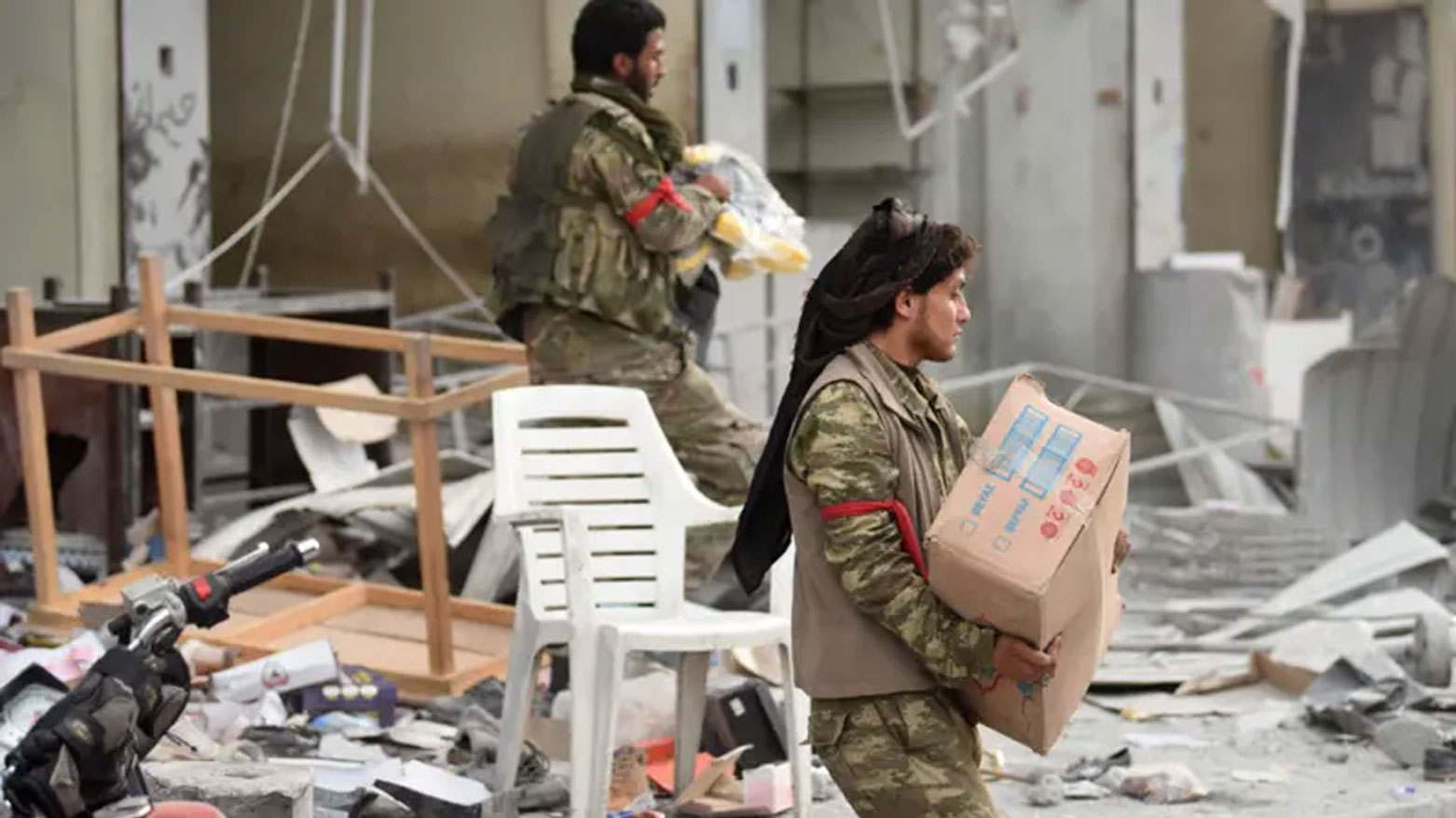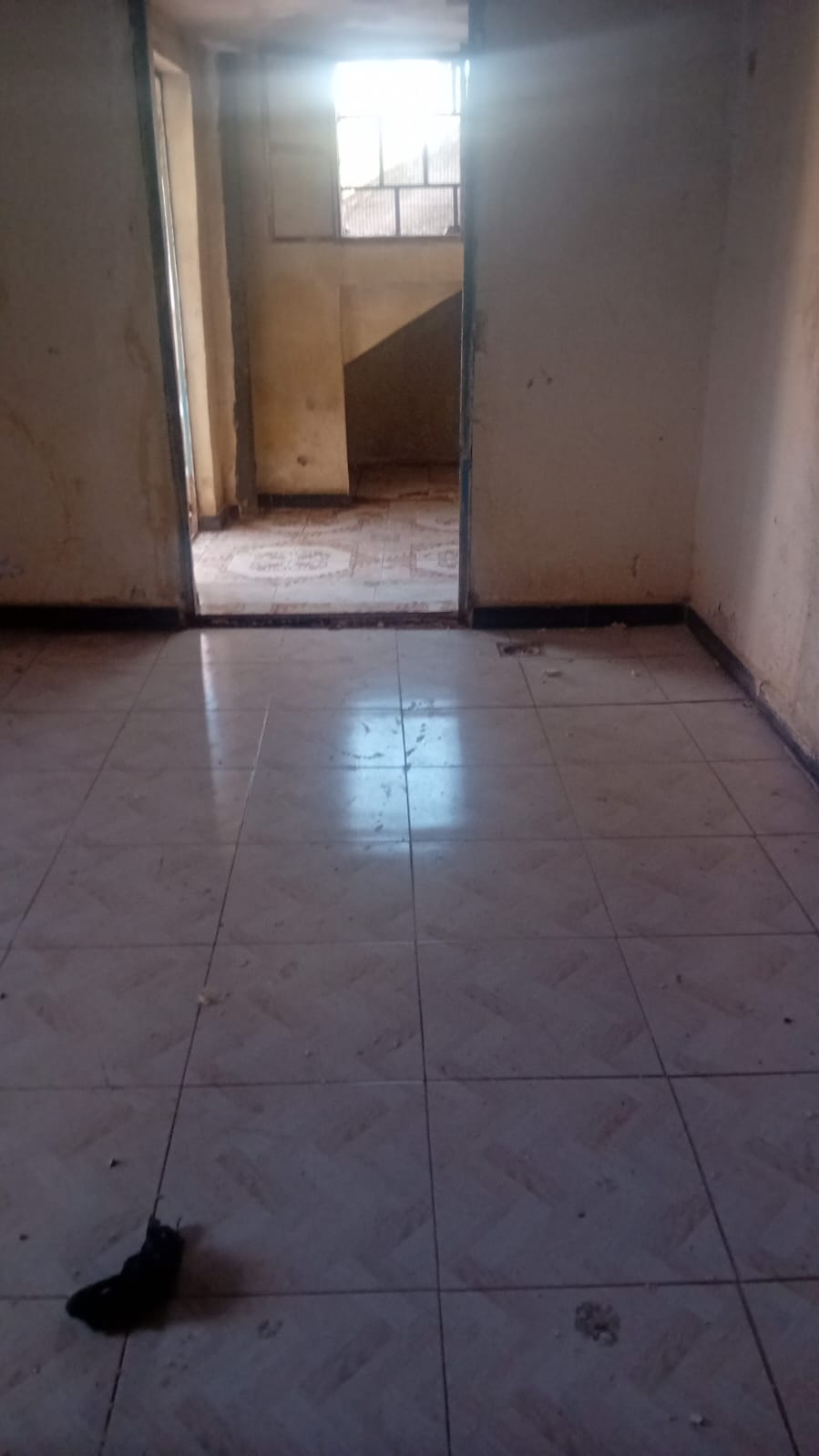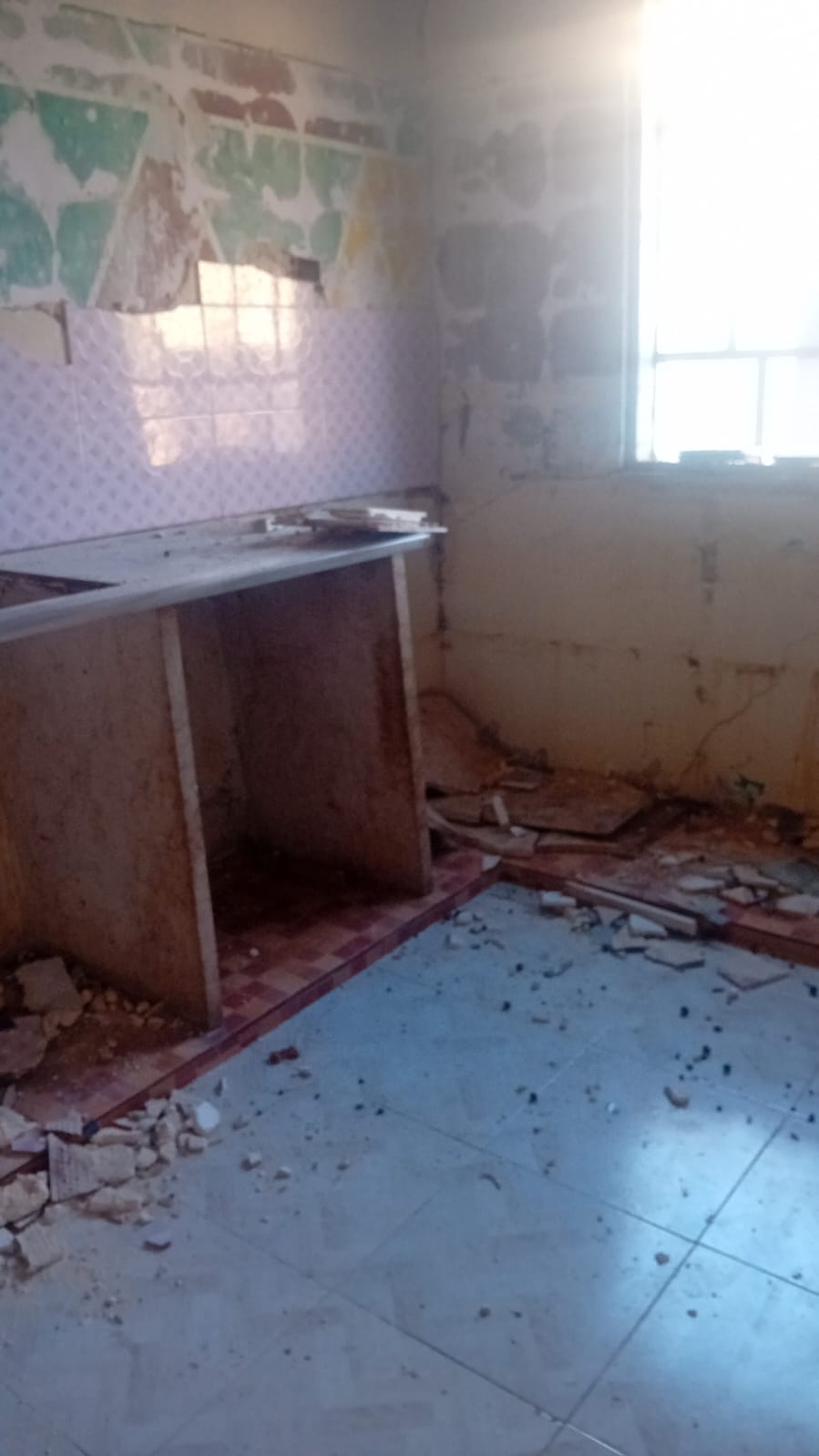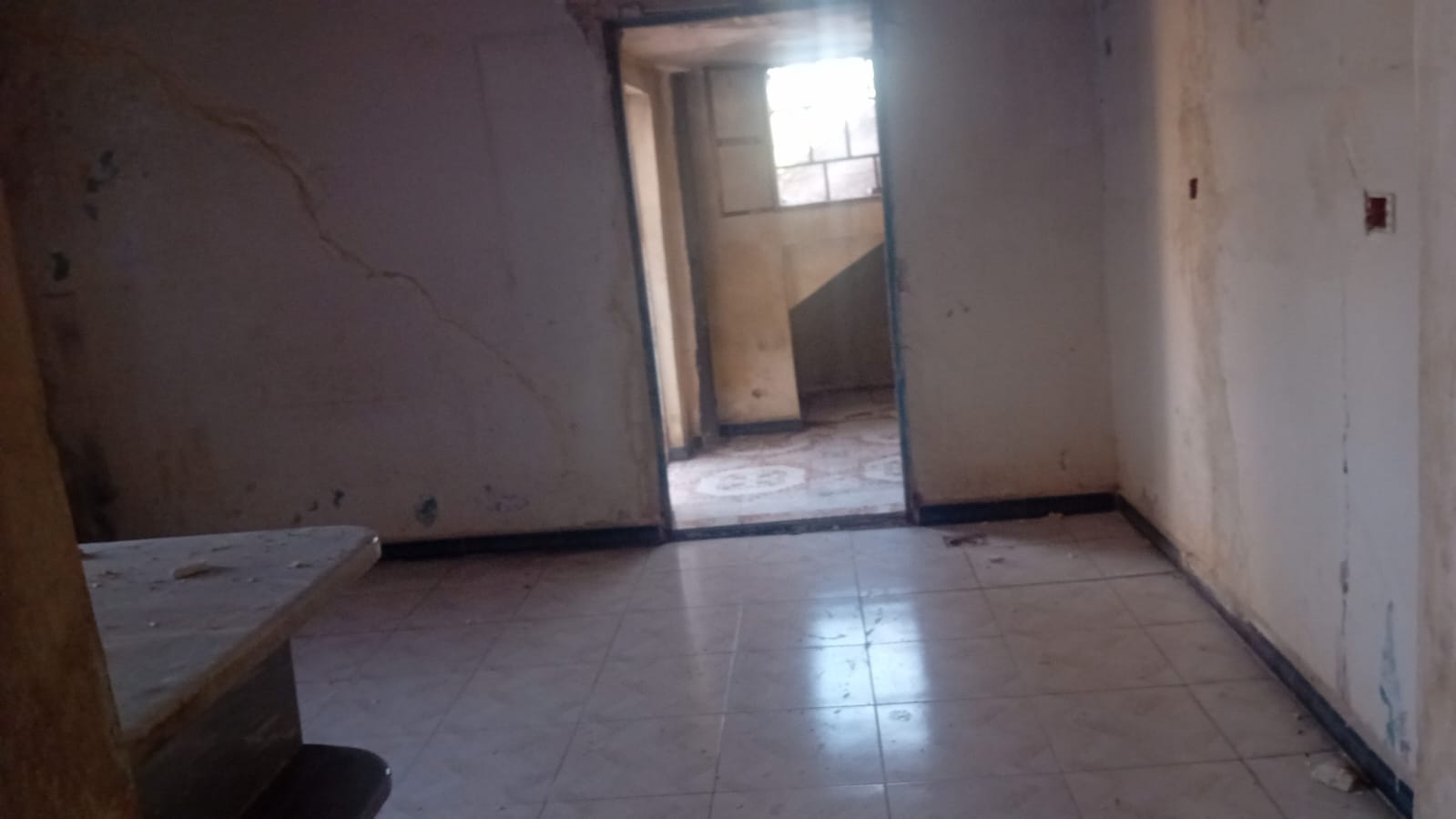Looting Before Withdrawal: SNA Groups Pillage Kurdish Homes in Afrin
A local resident from Qarmitlq, told Kurdistan24 that his house, occupied by armed groups since 2018, had been completely stripped. "They took everything… even the bathrooms and sinks stones weren’t spared," he said

By Ahora Qadi
ERBIL (Kurdistan24) – Multiple incidents of looting targeting Kurdish-owned properties have been reported across Afrin’s countryside in recent days, as factions affiliated with the Syrian National Army (SNA) begin withdrawing from their long-held positions, raising alarm over the lack of accountability and oversight in the region.
According to the UK-based Syrian Observatory for Human Rights (SOHR), members of the Sultan Suleiman Shah Brigade — widely known as the "Amshat" faction — have carried out a spate of thefts in several villages within Sheikh Hadid subdistrict in the Afrin region. The stolen items reportedly include household furniture, electrical wiring, as well as the very doors and windows of the homes — particularly in the village of Qarmitlq— where the perpetrators allegedly dismantled fixtures to take with them upon departure.
A local resident from Qarmitlq, currently living in central Afrin, told Kurdistan24 that his house, occupied by armed groups since 2018, had been completely stripped. "They took everything… even the stones from the bathrooms and sinks weren’t spared," he said, requesting anonymity for security reasons. The resident added that dozens of other homes in the village faced the same fate, and that the stolen goods had been gathered inside one of the homes to be transported as the faction prepared to relocate.
These reports come amid ongoing efforts by Syria’s transitional administration under President Ahmed al-Sharaa to reassert state authority across formerly opposition-held territories. Yet, full control over Afrin remains elusive, as local militias continue to exert de facto authority in several districts.
In a recent interview, Ahmed Hassan, head of the Kurdish National Council’s office in Afrin, acknowledged that while the number of armed factions and their checkpoints had decreased — particularly after the government's decision to integrate them into the Syrian Ministry of Defense — violations and extortion against civilians persist, notably in areas like Rajo, Sheikh Hadid, Jindires, and Bulbul.
Hassan emphasized that although the transitional government has begun asserting its presence, the process remains slow and incomplete. “The new government has yet to fully stabilize the situation in Afrin,” he said. “Looting, extortion, arbitrary taxation, and harassment of Kurdish civilians continue, and basic civilian protections remain inadequate.”
The Kurdish official also noted a sharp decline in the number of settlers — primarily from eastern Syrian provinces such as Deir ez-Zor, Raqqa, and Manbij — who had been relocated to Afrin following Turkey’s 2018 military incursion. “Many of them haven’t returned,” Hassan explained, citing reasons such as the ongoing school year, unresolved commercial matters, and hopes that future agreements may allow them to safely resettle in their places of origin.
As the transitional government continues to consolidate control, Afrin's Kurdish population remains caught in a precarious limbo — waiting not only for the return of their rights and properties, but also for an end to the impunity that has plagued the region for nearly seven years.



